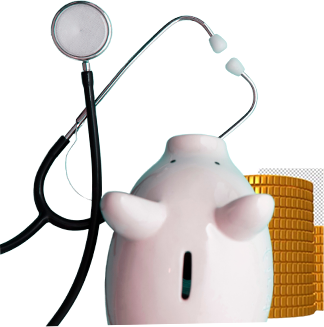PERSONALIZED DIET PLAN FROM
Dietitian and Nutritionist for Bodybuilding

Contact Us
Lifting weights is only one aspect of bodybuilding; another is finding the ideal balance between rigorous training and a careful diet. Your food drives the change in your body while your workouts shape it. Despite intense training, many bodybuilders find it difficult to achieve their desired body weight, increase muscle, or lose body fat. Their diet is often the missing piece. You may close this gap and realize your full potential by working with a certified dietitian or nutritionist.

Why Work with a Nutritionist for Bodybuilding?
A professional dietitian’s dietary suggestions are significantly more detailed than general guidance from internet resources or weekend nutrition courses. Dietitians offer evidence-based plans that align with your unique goals, fitness regimen, and body composition. Their expertise ensures you avoid issues such as insufficient protein intake or the use of unsuitable supplements.
Each bodybuilder is different. Dietitians create meal plans based on your metabolism, lifestyle, and medical history to guarantee you get the greatest outcomes and preserve your long-term health. They take care of everything, from dietary limitations to nutritional timing.
Dietitians focus on sustainable methods that enhance your body and its functions while encouraging overall wellness, rather than on fleeting trends or temporary fixes. This approach ensures your progress remains consistent through training phases and competitions.
Key Nutritional Components for Bodybuilding
When you are focusing on bodybuilding, understanding key nutritional components is important; here are some:
Proteins: Necessary for both muscle development and repair. Add fish, eggs, lean meats, and plant-based foods like tofu and lentils.
Carbohydrates: Carbohydrates provide the energy needed for intense physical activity. Focus on wholesome sources like fruits, vegetables, and whole grains.
Fats: Promotes general health and hormonal balance. Choose healthy fats from avocados, nuts, seeds, and olive oil.
Vitamins and Minerals: Iron, calcium, and magnesium are essential for both muscle growth and repair.
Branched-Chain Amino Acids (BCAAs): By avoiding the liver and supplying energy to muscles, isoleucine, valine, and leucine have a direct effect on muscular building.
Hydration and Electrolytes: Hydration affects both performance and recovery. To keep fluid balance and avoid cramps, electrolytes such as sodium, potassium, and magnesium are essential.
Fiber—Helps with digestion and maintaining gut health. High-fiber foods include fruits, vegetables, whole grains, and legumes.

Benefits of Working with a Bodybuilding Nutritionist
Working with a bodybuilding nutritionist can offer several benefits. Here are some of the main advantages.
Customized Nutrition Plans
Your nutritionist tailors a meal plan to boost your performance by considering factors like body composition, calorie needs, and training routine.
Enhanced Performance
A personalized diet can help you excel in workouts and competitions by improving strength, stamina, and focus.
Faster Recovery
A healthy diet speeds up recovery and lowers the chance of overtraining and injury. Foods and supplements high in nutrients encourage the development and repair of muscles.
Addressing Dietary Restrictions
If you have dietary restrictions like gluten sensitivity or lactose intolerance, a dietitian can recommend alternatives to keep you on track.
Supplement Guidance
Your dietitian ensures you’re using supplements like protein powders and creatine safely and effectively to meet your goals.
Nutrient Timing
Planning meals, like eating protein-rich foods after a workout, can boost muscle recovery and growth.
Common Diet Plans for Bodybuilders
The following are some of the diet plans that bodybuilders can follow during different stages.
Bulking Phase
Bodybuilders take excess calories during this period to gain muscle growth. This includes meals that are heavy in protein, complex carbohydrates that provide long-lasting energy, and healthy fats that support hormones.
Cutting Phase
The goal of this phase is to maintain muscular mass while decreasing body fat. Strategies include a calorie-deficit diet, increased protein intake, and reduced simple carbs and fats.
Maintenance Phase
A well-rounded strategy aids in maintaining your results once you’ve reached your ideal body. This involves consuming protein, fat, and carbs in moderation based on your level of exercise.


Recommended Foods for Bodybuilding Success
Proteins
- Eggs
- Chicken and turkey breast
- Lean beef
- Fish (salmon, tuna)
- Greek yogurt
- Beans and lentils
Carbohydrates
- Brown rice
- Quinoa
- Sweet potatoes
- Oatmeal
- Whole-grain bread
Fats
- Avocado
- Almonds and walnuts
- Olive oil
- Chia seeds
Vegetables and Fruits
- Broccoli
- Spinach
- Apples
- Bananas
Snacks
- Protein bars
- Peanut butter on whole-grain toast
- Cottage cheese with berries
Why Choose QUA Nutritionists for Bodybuilding?
Our registered dietitians at QUA Nutrition have received specific training in sports nutrition. With their in-depth knowledge of bodybuilding, our team crafts personalized strategies that deliver results. Our team of experts keeps abreast of the most recent findings and methods, providing tactics that complement your objectives and the requirements of contemporary bodybuilding. We aim to build lasting relationships by providing consistent guidance and adapting your diet plan as your needs evolve. From meal planning to supplement recommendations, we cover all aspects of nutrition to support your bodybuilding journey. You can attain outstanding results in the gym by combining expert guidance with commitment. Contact us and let QUA Nutrition be your partner on this transformative journey.

Q: Can a nutritionist help me gain muscle mass?
A: Yes, a trained nutritionist may create a nutrient-dense, high-protein diet plan specifically for your objectives. They also offer advice on when to take nutrients and how to supplement effectively.
Q: What foods should I avoid while bodybuilding?
A: Stay away from trans fats, sugary snacks, and processed foods. These have lower nutritional content and may impede the growth and recovery of muscles.
Q: How important is hydration in bodybuilding?
A: Performance, recovery, and general health all depend on enough hydration. To stay balanced during vigorous workouts, incorporate electrolytes into your hydration regimen.
Q: Do I need supplements to build muscle?
A: Although they can improve your results, supplements like BCAAs, creatine, and protein powders should be used in addition to a balanced diet rather than as substitutes for them.
Q: How often should I adjust my diet plan?
A: Depending on your progress and training phase (maintenance, cutting, or bulking), you should modify your diet. See a nutritionist on a regular basis to make sure your strategy continues to work.


